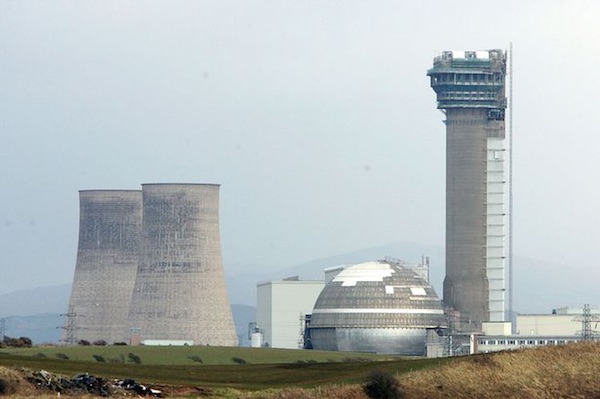
The Dublin government has been urged to demand the complete closure of the Sellafield nuclear site on the west coast of Britain after a BBC programme raised concerns about safety at the facility.
The Panorama investigation was prompted by a former senior manager turned whistleblower who exposed conditions at the site in Cumbria, which is some 170km from the Irish coast.
The programme alleged that radioactive plutonium and uranium were stored in plastic bottles at Sellafield, and the facility often did not have enough people on duty to meet minimum safety levels.
The whistleblower said his biggest fear was a fire in a nuclear waste silo or processing plant. “If there is a fire there it could generate a plume of radiological waste that will go across western Europe. “
The programme also revealed failures in terms of infrastructure and the condition of facilities at the site, with serious operational safety concerns. On average the staffing regulations were breached once a week.
Liquid containing plutonium and uranium has been stored in thousands of plastic bottles for years, the programme found. The bottles were only intended as temporary storage and some are degrading.
Some efforts have been made to remove them, but there are still more than two thousand bottles containing plutonium and uranium on the site, the BBC reported.
Meg Hillier MP, who chairs the Public Accounts Committee at Westminster, said. “It is incredible. It defies belief actually that, that anything could be working at below safe staffing levels. There is no excuse.”
Sinn Fein leader Gerry Adams said the Dublin government should demand the closure of Sellafield. His Louth constituency was “in the front line of any threat”. Sinn Fein Assembly member for South Down, Caitriona Ruane, shared that view. She said the plant “is a danger and continues to be a threat”.
Ms Ruane said there have long been concerns at associated health risks to those living on Ireland’s east coast. “It needs to close and the Irish Government need to convey that message to the British Government on a regular and routine basis.”
South Down MP Margaret Ritchie said a plan to decommission Sellafield must now come.
The SDLP politician said the risks exposed by Panorama are the latest in a “litany of hazards” since Sellafield became a nuclear waste processing site.
“It has always been needlessly reckless to place a nuclear waste processing site on a geological fault line, and the indiscriminate discharge of radioactive material into the waters of the Irish Sea has damaged delicate marine ecosystems,” she said.
![[Irish Republican News]](https://republican-news.org/graphics/title_gifs/rn.gif)
![[Irish Republican News]](https://republican-news.org/graphics/title_gifs/harp.gif)

